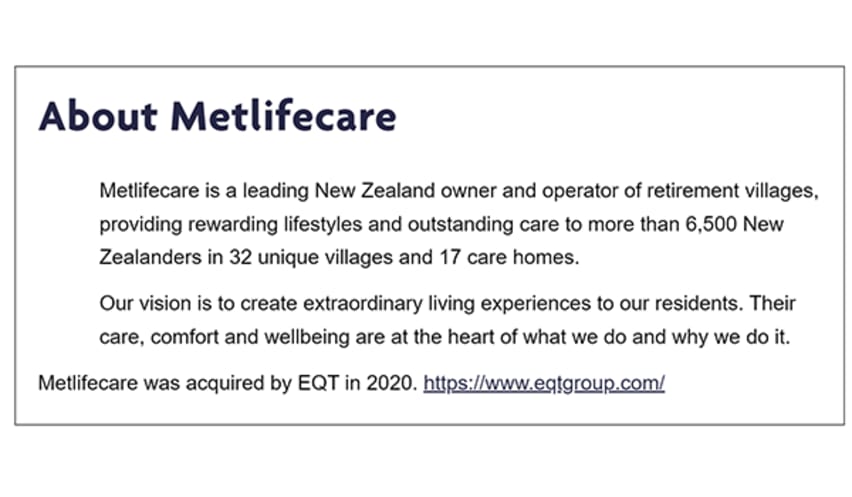Suzanne Dvorak, the new CEO of Stockland’s 58 village portfolio now owned by Swedish investment fund EQT, points to a bigger care component in their villages, given her crash course in aged care leading Bupa’s 72 aged care homes through COVID-19. But Levande’s new website and press releases emphasise that people will be joining its villages not for care but for “lifestyle”.
We suspect this is the sizzle of offering a fresh start for their many villages that are now 30-plus years old, meaning their resident average age is likely to be in the very high 70s to early 80s. Care support will be what they really want, not lifestyle.
Suzanne was also leading the Retirement Living business of Australian Unity when it opened Rathdowne Place and Drummond Place, a co-located village and care precinct in Melbourne that established the benchmark in vertical developments (we filmed a section of our TV series there last week).
EQT also owns Metlifecare in New Zealand, and therefore has first-hand knowledge of the strength of the continuum-of-care village model. NZ CEO Earl Gasparich is a very experienced “growth” executive, and he will have good advice for Suzanne.
Meanwhile, the elephant in the room, the big Not For Profits in the care world, are all pivoting away from future residential care development towards assisted living in villages. Check out the volume of projects under development by Uniting NSW & ACT, Bolton Clarke, and now Anglicare in Sydney under its new CEO Simon Miller.
Record-breaking sales volumes and prices achieved by private aged care operators delivering under the Retirement Village Act verify that care support sells, while lifestyle after the age of 70 holds less appeal.
This will be significantly more so when the new residential aged care star rating scheme commences later this year; the expectation is that all aged care homes will average just two stars at best, given the marking criteria. Expect a flood of people seeking alternative accommodation in villages with support – not lifestyle.










